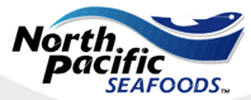Located on the Kenai Peninsula, just a short flight from Anchorage, are the Kenai and Kasilof plants of North Pacific Seafoods.
Season Dates: Processing normally starts at the very end of May and continues through mid/late September.
Employees: Between the two plants, which are 10 miles apart, we have up to 250 employees.
Room & Board: Employees are housed in shared rooms in dormitory style housing. Employees pay $8 per day for room and board (meals). Raingear is provided by the plant. While the plant provides bed linens, many employees prefer to bring a sleeping bag. Employees need to supply their own towels, clothing and toiletries.
Amenities: Our breakrooms have TV and wireless internet. There is AT&T cell coverage too.
Transportation: Transportation from home to Anchorage (and the return trip at the end of the season) is the employee’s responsibility. We provide transportation from Anchorage to the worksite and back to Anchorage as long as the employee works until they are released at the end of the season.
About Inlet Fish Producers
North Pacific Seafoods operates two plants on the western coast of the Kenai Peninsula, one on the Kenai River and one on the Kasilof River. Both rivers feed into Cook Inlet. Our Kenai Peninsula operations are known as Inlet Fish Producers, or IFP. Located approximately 150 miles south of Anchorage, these plants are the only NPSI facilities on the road system, allowing us to truck salmon to the Lower 48.
Prior to Russian settlement, Kenai was a Dena'ina Athabascan Indian village. Russian fur traders first arrived in 1741. At that time, about 1,000 Dena'ina lived in the village of Shk'ituk't, near the river. The traders called the people "Kenaitze" or "Kenai people." Today Kenai is home to approximately 8,000 people.
The Kenai River is popular with sports fishermen for its prize winning King and silver salmon.
Kasilof was the site of the first salmon cannery in Cook Inlet, constructed in 1882. Early residents were fishermen, imported from San Francisco by the cannery, who settled along the river. They augmented their fishing income with trapping and big game hunting and guiding. Homesteading after WWII brought an influx of newcomers to Kasilof, many of whom came intending to farm but ended up working in the salmon fishing industry.
North Pacific Seafoods purchased the IFP plants in June 2015. IFP-Kenai and IFP-Kasilof work in tandem to process salmon from Cook Inlet and Prince William Sound from June through September.
Season Dates: Processing normally starts at the very end of May and continues through mid/late September.
Employees: Between the two plants, which are 10 miles apart, we have up to 250 employees.
Room & Board: Employees are housed in shared rooms in dormitory style housing. Employees pay $8 per day for room and board (meals). Raingear is provided by the plant. While the plant provides bed linens, many employees prefer to bring a sleeping bag. Employees need to supply their own towels, clothing and toiletries.
Amenities: Our breakrooms have TV and wireless internet. There is AT&T cell coverage too.
Transportation: Transportation from home to Anchorage (and the return trip at the end of the season) is the employee’s responsibility. We provide transportation from Anchorage to the worksite and back to Anchorage as long as the employee works until they are released at the end of the season.
About Inlet Fish Producers
North Pacific Seafoods operates two plants on the western coast of the Kenai Peninsula, one on the Kenai River and one on the Kasilof River. Both rivers feed into Cook Inlet. Our Kenai Peninsula operations are known as Inlet Fish Producers, or IFP. Located approximately 150 miles south of Anchorage, these plants are the only NPSI facilities on the road system, allowing us to truck salmon to the Lower 48.
Prior to Russian settlement, Kenai was a Dena'ina Athabascan Indian village. Russian fur traders first arrived in 1741. At that time, about 1,000 Dena'ina lived in the village of Shk'ituk't, near the river. The traders called the people "Kenaitze" or "Kenai people." Today Kenai is home to approximately 8,000 people.
The Kenai River is popular with sports fishermen for its prize winning King and silver salmon.
Kasilof was the site of the first salmon cannery in Cook Inlet, constructed in 1882. Early residents were fishermen, imported from San Francisco by the cannery, who settled along the river. They augmented their fishing income with trapping and big game hunting and guiding. Homesteading after WWII brought an influx of newcomers to Kasilof, many of whom came intending to farm but ended up working in the salmon fishing industry.
North Pacific Seafoods purchased the IFP plants in June 2015. IFP-Kenai and IFP-Kasilof work in tandem to process salmon from Cook Inlet and Prince William Sound from June through September.

